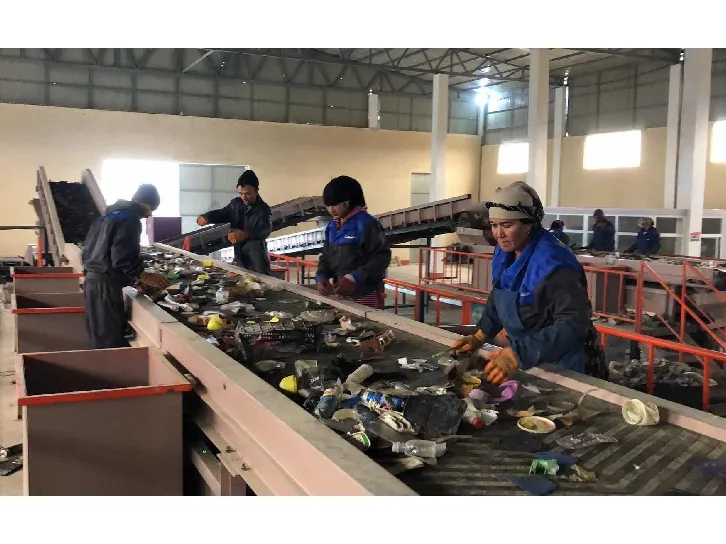
10 月 . 18, 2024 19:05 Back to list
The Importance of Scrap Metal Hammer Mills in Recycling
In today’s rapidly growing industrial landscape, recycling has become an indispensable part of sustainable practices. One of the key processes that support recycling is the effective handling of scrap metal. Scrap metal hammer mills have emerged as essential equipment in this domain, enabling the efficient processing of various types of metal waste. This article explores the significance of scrap metal hammer mills, their operational principles, and their contribution to environmental sustainability.
Understanding Scrap Metal Hammer Mills
Scrap metal hammer mills are heavy-duty machines designed specifically to crush, shred, and refine metal scrap. These mills use a high-speed rotating hammer or a series of hammers to break down metal into smaller, manageable pieces. The size reduction allows for easier transport, handling, and recycling, ensuring that valuable metal resources are not wasted. These machines can process a wide variety of scrap metals, including aluminum, copper, steel, and more, making them versatile tools in the recycling industry.
Operational Principles
The operation of a scrap metal hammer mill involves several key components and processes. Initially, scrap metal is fed into the mill, where it is subjected to intense mechanical forces from the hammers. As the hammers rotate, they strike the metal repeatedly, breaking it apart. The design of the mill, including the placement of screens or grates, determines the size of the output material. Once the metal is sufficiently reduced, it can either be removed from the mill for further processing or directed to additional sorting and cleaning operations.
Most modern hammer mills are equipped with advanced technology that enhances efficiency. This may include variable speed motors, automated controls, and dust collection systems that improve air quality during operation. Additionally, some mills incorporate magnetic separators to extract ferrous materials from non-ferrous metals, further optimizing the recycling process.
The Role in Sustainability

The significance of scrap metal hammer mills extends beyond their operational capabilities; they play a critical role in promoting environmental sustainability. Recycling metal reduces the need for mining and extracting raw materials, which can be harmful to the environment. By processing scrap metal, industries can conserve natural resources, lower energy consumption, and decrease greenhouse gas emissions associated with metal production.
Furthermore, recycling scrap metal not only supports eco-friendly practices but also contributes to the economy. The recycling industry generates significant revenue and creates jobs in various sectors, including collection, processing, and manufacturing. By investing in scrap metal hammer mills, businesses can optimize their recycling processes, thus enhancing profitability while supporting sustainable development goals.
Challenges and Innovations
While scrap metal hammer mills offer numerous advantages, they also face challenges. The fluctuating prices of scrap metals can affect the viability of recycling operations, and the processing of contaminated or mixed metals can complicate recycling efforts. To address these challenges, innovation within the industry is crucial. For example, the development of more efficient sorting technologies and biodegradable coolants can enhance the performance of hammer mills and minimize environmental impact.
Additionally, the integration of artificial intelligence and automation in recycling processes can streamline operations and improve safety in the workplace. These advancements not only enhance the effectiveness of scrap metal hammer mills but also ensure that the recycling industry remains competitive and sustainable.
Conclusion
In conclusion, scrap metal hammer mills are vital components of the recycling ecosystem. They facilitate the efficient processing of scrap metal, conserve natural resources, and promote sustainable industrial practices. As the world continues to grapple with environmental challenges, the importance of recycling and the role of robust machinery like hammer mills cannot be overstated. By embracing innovation and improving operational efficiency, the scrap metal recycling industry can further contribute to a sustainable future, bridging the gap between economic growth and environmental stewardship.
Latest news
Unveiling the Power of Eddy Current Separator
NewsSep.25,2024
Transform Your Home Recyclin:home metal shredder
NewsSep.25,2024
The Future of Waste Management with Recycling Line Picker
NewsSep.25,2024
The Benefits of a Metal Recycling Plant
NewsSep.25,2024
Revolutionize Material Separation with Onwang Technology
NewsSep.25,2024
Innovative Waste Management: Unveiling the MSW Sorting Plant
NewsSep.25,2024